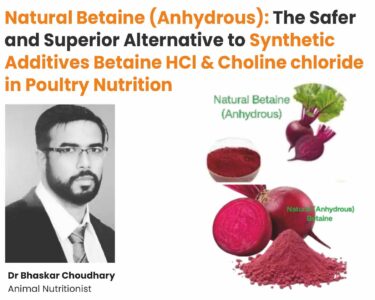
Author: Agriculturist Md Sahidur Rahman Miah, Poultry Specialist,
Farms Operation-Breeder& Commercial (Broilers & layers),
Management & Nutrition, Animal Husbandry, MBA (HRM), PGDPM,
PGDHRM, AGM-Farms, Kazi Farms Group, Bangladesh
What is heat stress in poultry?

Heat stress is an annual recurring problem that continues to challenge the poultry industry. The absence of sweat glands in birds makes thermo regulation a slightly more complex proposition when attempting to combat heat stress in poultry.
Heat stress is one of the most important environmental stressors challenging poultry production worldwide. The detrimental effects of heat stress on broilers and laying hens range from reduced growth and egg production to decreased poultry and egg quality and safety.
Effect of heat stress in poultry:
1.Physiological Changes
– Oxidate Stress
– Acid Base Imbalance
– Suppressed Immuno competence
2.Neuroendocrine Changes
3.Gut Integrity Change
How do bird react to heat stress in poultry?
- 1.Start to drop the wings for heat release and then start to pant.
- Energy will be redirected away from growth and production.
- Feed intake reduce
- Lose a high amount of water through respiration & faeces. The increase of respiratory rate is also the cause of acid base imbalance (Respiratory alkalocies)
- Redistribution of the blood flow to the skin & Respiratory stress.
Consequence of heat stress in poultry
1.Immune Consequence
- In Laying Hens-Lower T & B cell activity
- Inhibition of what blood cells antibody production
- In Broilers-Atropy of immune organs
- Increase IL-2, IL-4, IL-12 production
2. Systematic Consequence
- Increase production of “Stress maker”including cortisol, glococorticoids & catechlamines
- Mucosal leaking & tissue damage
- Reduce secretion of reproductive hormone like FSH, LH, estradiol leading to poor yolk quality & fertility
- Reduced activity, respiratory alkalosis
- Reduced fee intake & growth
3.Microbiological Consequence
- Destabilization of the gut microbione
- Reduction of good bacteria like bactibacillus
- Increase number of potential pathogens in the gut
- Stimulate intestinal colonization by Salmonella
Consequences will significantly impact bird performance
- Decreased feed intake, poor growth & feed efficiency
- Increased mortality
- Digestive disorders
- Reduced fertility in breeders
- Reduced hatchability in breeders
- Decreased production
- Lower meat & egg quality
- Poor egg shells
Strategies for mitigation in poultry
- Environmental measurements
- Nutritional strategies
- Environmental measurements
- Reducing the inside sheds temperature
- Cooling through ventilation or EC can help to keep birds closer to their thermoneutrality.
- Reducing stocking density during Summer
- Adjusting lighting regimen to encourage increase feed intake overnight & in the early morning.
- Managing water intake Provide fresh cool water with sufficient water space.
- Medications: Provide Vit C & Electrolytes in drinking water
- Nutritional strategies
1.Feed Quality *Preventing Oxidation
preventing feed rancidity due to oxidation ensures high feed palatability & encourages an optimal feed intake by the bird.
*Optimizing physical properties of the ration ensure feed particle size optimal (not too dusty)
2.Feed Formulation & Feeding Strategies
*Increasing the proportion of fat/oil in the diet.
*Formulating the diets by digestible amino acids rather than crude protein.
*Promoting optimal nutrient digestion & absorption.
*Feed restriction, dual feeding & wet feeding.
3.Support of Bird Health
*Electrolytes balance
*Vitamins
Vit E for prevent liver damage, help in synthesis & release of vitellogenin which improves egg production, egg wt & egg shell quality.
Vit A for antibody production, increase egg wt and improve live wt & FCR.
Vit C for improve growth rate, nutrient digestibility, egg production, immune response & anti-oxidant status of heat stress
*Enhancing the Immune Systematic contribute to support birds immunity during heat stress challenges (Vit E,Vit C,Chromium supplementation)
*Minerals Supplements
Zn is associated with anti-oxidant defense system & immune function.
Cr is for decrease the levels of corticosterone in blood.
Se is for improve anti-oxidant & Immune status.






